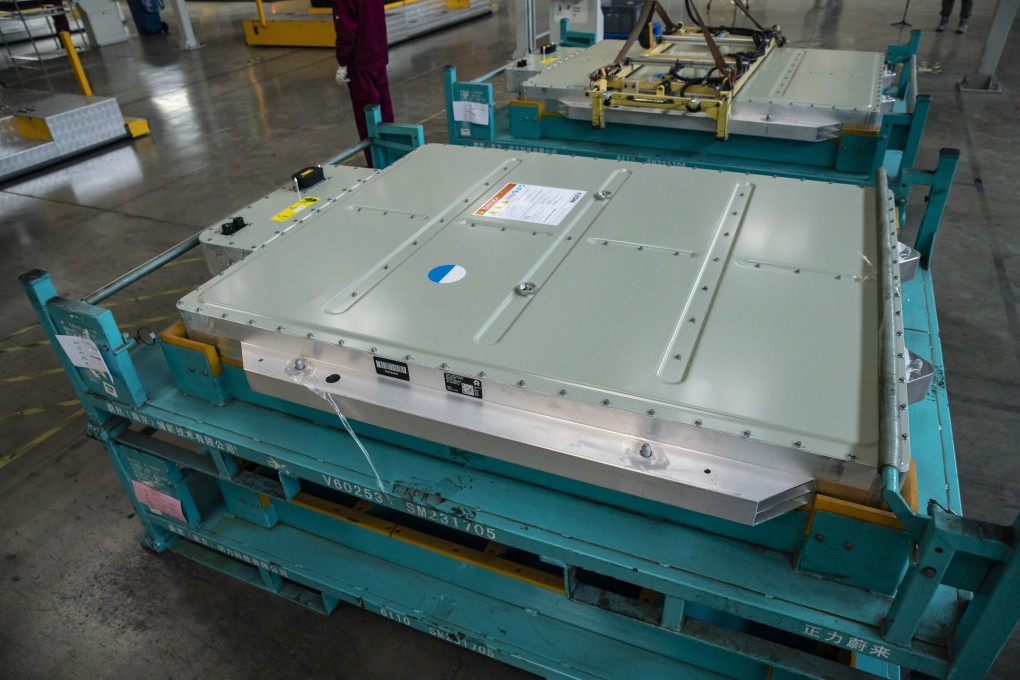China’s EV battery manufacturers race to develop new technologies that are less reliant on pricey metals
- Electric car assemblers like NIO and Xpeng are now in a race for supremacy in the future of mobility, and new battery technologies may well be the key
- But refashioning a segment that is vast, fast-changing and vital to the broader industry will not be easy, analysts warn

This second instalment of a three-part series on China’s electric car batteries looks at the technology behind the alternative power source.
Standing at the centre of a sports arena in Chengdu, Li told more than 10,000 people attending the NIO Day event that a 150 kilowatt-hour (kWh) solid-state battery pack would be used to power the extended edition of its ET7, a new production model, enabling the car to go as far as 1,000 kilometres on a single charge.
Although Li has not confirmed it, the most likely maker of the groundbreaking battery is Contemporary Amperex (CATL), based in the Fujian provincial city of Ningde, according to industry blogs and speculation. CATL’s spokespeople have declined to comment.
If CATL were to be granted the supply contract, it would be a source of pride for China’s EV battery industry which has been striving to catch up with global leaders since William Morrison, a Scottish immigrant and chemist, invented a horseless carriage powered by 24 lead-acid battery cells in 1912.
The extended-range edition of the ET7 is expected to be delivered to customers in the fourth quarter of 2022.